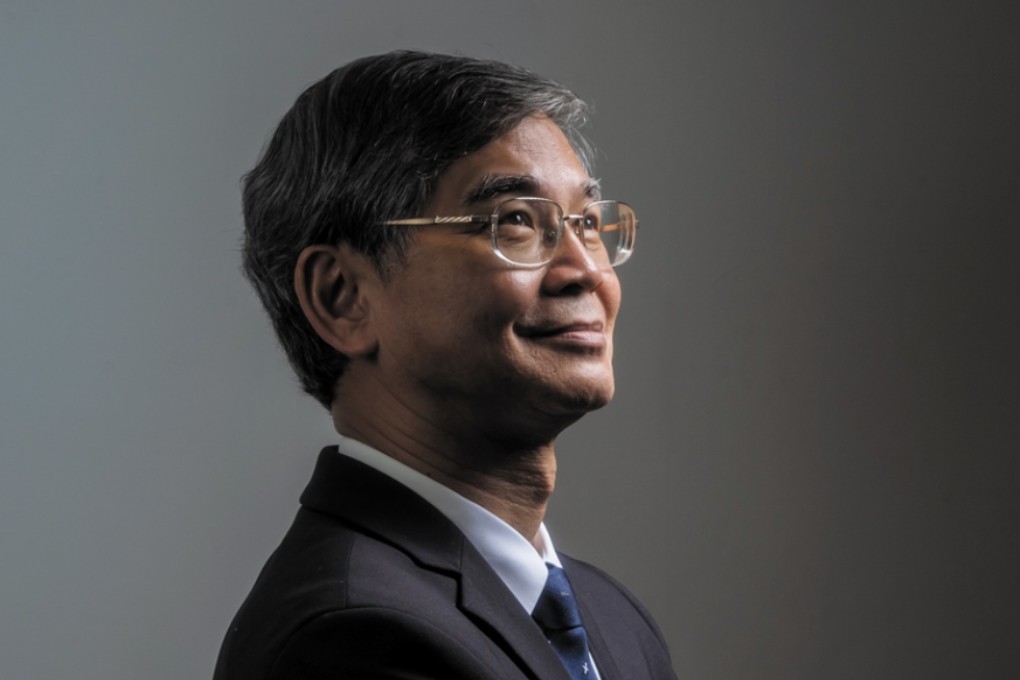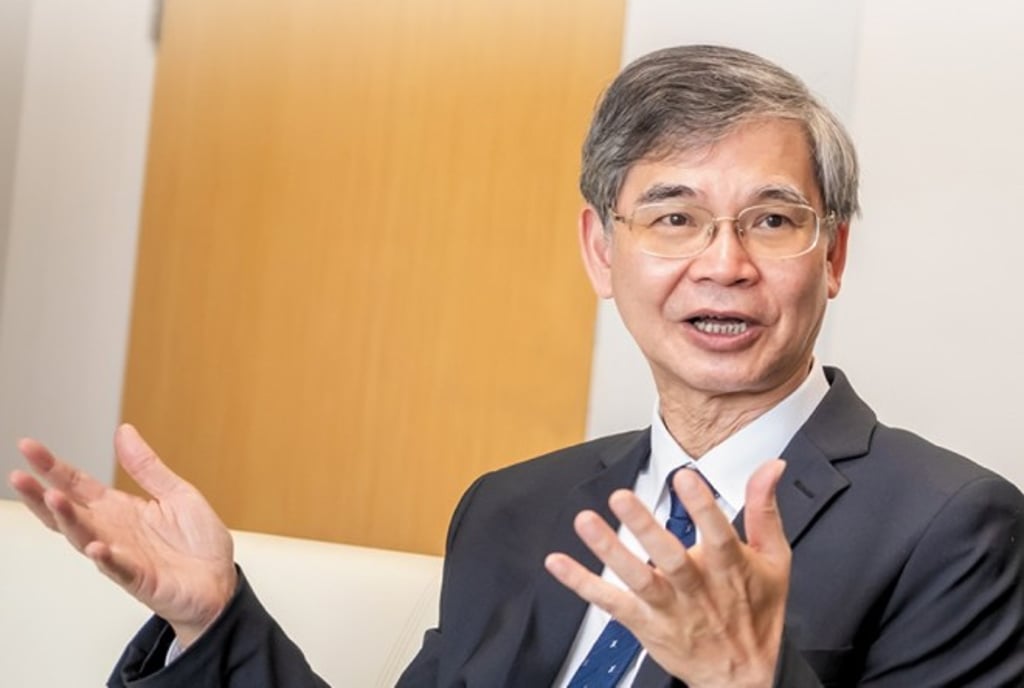Adapting to a Changing World
Dr LAW Chi Kwong is Hong Kong’s Secretary for Labour and Welfare. In addition to being head of the bureau, he oversees public policy on manpower planning, vocational training and retraining. Given that the local workforce has proven to be flexible and adaptable in the past, Dr Law hopes, that with the necessary support, this will also hold true in a digital future.

[Sponsored Article]
From 1981 and 2017, Dr Law taught in the Department of Social Work and Social Administration at the University of Hong Kong. Before taking up his current governmental role two years ago, he also held senior positions in a number of public bodies promoting social services.
This breadth of experience gives him an understanding of the effects economic transformation may have on those without the wealth or the technical skills to easily navigate an uncertain future. Looking back at Hong Kong’s experience in the 1980s, he sees some grounds for optimism, as well as some warnings about what pitfalls to be avoided when it comes to the process of adjustment and adaptation that the city is likely to soon require.
Lessons from the past
In the 1970s, more than one million Hongkongers, approximately 40 per cent of the workforce, were employed in the manufacturing sector. When local businesses began to take advantage of China’s new policy of openness and relocated their factories across the border to the Mainland, many of the city’s displaced workers gradually moved into the service and retail sector.
“However, because of the oversupply of labor, these workers did not subsequently enjoy much in the way of a salary increase,” Dr Law points out. Their income and standard of living did not significantly improve for roughly two decades, despite the continued growth of the Hong Kong economy. “This is a lesson we should learn from,” he notes.
Dr Law also sees Hong Kong’s economic base as still being too narrow.“While we need to make our economic structure more flexible, we also need to diversify our economy.”
Training and retraining
One of the key recommendations in the HKUST-APRU report (Transformation of Work in the Asia-Pacific in the 21st Century) focused on the need to ‘develop reskilling and reform capacities to support the displaced workforce’.
Dr Law pointed out that Hong Kong is already taking significant steps in this direction. Over half of those signing up for courses via the Employees Retraining Board are aged over 50, he notes. “And we see a growing number of middle-aged people begin post-graduate degree programs, when they realize they need to acquire new skills.”
He says that the government is actively seeking to support individual choice when it comes to life-long learning and continuing education opportunities. “For example, the government has revamped its Continuing Education Fund (CEF). Coming into effect from April 1, 2019, the CEF subsidy ceiling has been increased from HK$10,000 to HK$20,000 per applicant, the upper age limit for applicants has been raised from 65 to 70, and other restrictions have been lifted.”
But, he says, private companies can also play a key role by providing the sort of training which enables their employees to develop the skills required to make use of emerging technologies, such as blockchain. However, Dr Law points out, 98 per cent of companies in Hong Kong are SMEs. “They employ less than 50 employees and they are less willing to offer training to their staff. They don’t have many incentives to train them, partly due to the high employee turnover rate in Hong Kong.”
Furthermore, it is difficult for the government to incentivize a company to shift from one industry to another if their original business model has become unsustainable because of developments in technology. “Therefore, I think it’s better to retrain the displaced workers and make them more flexible.”
How the future may pan out
“Even with advances in technology, I’m not so worried about a sudden, big drop in the number of jobs in Hong Kong, especially since we are now heavily reliant on the service industry,” states Dr Law. “It’s a matter of how people adjust and adapt.”
By way of example he points out that every industry needs managers, and many management skills are transferable across industries. “As long as the nature of the new industry is not so different, people can adjust and adapt.”
What’s more, Dr Law believes technology will, ultimately, create more jobs than it replaces. He sees new forms of technology-enabled services, markets and platforms, creating forms of employment that we can’t currently imagine, and he predicts that there will be increased demand for art and culture, as the human spirit will always seek a more elevated form of satisfaction.
While he accepts that digitization and automation will revolutionize many industries, Dr Law believes not all consumers will be keen to change their established patterns of behavior. “Don’t forgot, most developed economies have an aging population. Their adjustment to technology will be relatively slow.” With a considerable number of Hongkongers aged over 65, many of them are still using fixed telephone lines. And thus, he doesn’t see traditional banking disappearing overnight. “Virtual banking will serve a new group of under-banked customers,” he suggests.
When formulating a strategy to prepare its workforce for the future, Hong Kong has to take all its political, economic, societal, geographical realities into consideration, Dr Law believes. Hong Kong’s location within the Greater Bay Area is one geographical reality that he sees working very much in the city’s favor.
“The bigger market will provide room for labor mobility. This will, at least, partly address income inequality, as displaced workers in one city may be able to find a suitable job elsewhere in the region. Some skills no longer needed in Hong Kong could prove to be useful in other cities.”
